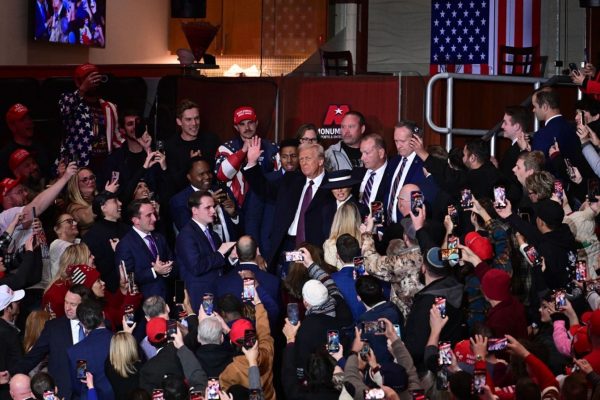Ebola: Debunking the Myths
EBOLA-(n.) the five letter word that strikes fears with every utterance. For years this disease was barely on the radar of American concerns, even as it tore through West Africa more and more voraciously, taking breaks and then starting up with new fervor.
But when Liberian Thomas Duncan was diagnosed with Ebola on American soil, the United States entered a state of panic over the third world disease which had somehow broken the first world barrier.
In all of the confusion and fear, it is easy to be swayed by false media reports and alarming cynicism. But the United States, unlike the impoverished nations of Africa, is more prepared to combat this disease through advanced medicine and government intervention.
While Ebola might not be airborne, misconceptions about the disease and its responses from Washington are becoming increasingly so.
Many of those in positions of authority are not entirely sure about the disease itself. Nathan Deal, the governor of Georgia (the state which houses the Center for Disease Control) told reporters in an interview that he had learned that Ebola could be killed with water; therefore, he advised the public to “just wash your hands.” However, water does not simply kill Ebola. Chlorine and bleach kill the germs, as well as other disinfectants, but unlike the common flu, simply washing hands with water and pumps of Soft Soap will not remove 99.9% of the Ebola virus.
Figures in pop culture are also furthering the misconceptions. Chris Brown recently tweeted to his 13.7 million fans that he “thinks this Ebola epidemic is a form of population control.” Conspiracy theories are clouding the truth around the disease, making people think, like conservative talk radio show host Michael Savage’s theory that “this is all part of an Obama plot to purposefully infect the nation.”
Animosity toward the government just displays the lack of concrete facts surrounding the true situation that is emerging and being dealt with right here at home and abroad. After some mishaps in health procedures in Texas concerning the treatment of Duncan, the government began enacting policies and protocols to better monitor those entering the United States from Ebola-stricken nations.
Approximately 100 people a day arrive to the United States from Sierra Leone, Guinea, and Liberia—most of them American citizens or permanent residents. About 70 percent of the people arrive to six states: New York, Maryland, Pennsylvania, Georgia, New Jersey and Virginia. This has prompted stricter policies in JFK, Washington Dulles, Newark Liberty, Chicago O’Hare, and Jackson Atlanta International airports.
All returning health care workers and visitors are required to answer questions regarding their exposure to the virus, take their temperatures twice daily, and even make visits to physicians. Because of the 21-day incubation period for Ebola, these individuals are also restricted from public transportation and large gatherings to prevent any chance of the virus being spread any further.
This provides the middle ground between the forced quarantine policies of New Jersey and New York and complete inaction. The system is carefully monitored to allow for the health and safety of American citizens.
Also, the developmental drug Z-MAPP, with its successes in curing the two nurses infected by Duncan, is creating hope for combatting those safely quarantined and treated for the Ebola virus both in the United States and around the world.
The government is not only concerned with the safety of Americans but of all of those faced with the mutating virus at its worst in West Africa. Spreading the advanced medicine and disease prevention techniques, American forces in Africa are controlling the disease at its source, preventing secondary exposure, and working to create an infrastructure that will allow for the eradication of this disease and other epidemics of its type.
American actions are not simply grounded in the protection of its citizens, but in a large moral obligation to help those devastated by disease around the world. Hopefully soon the myths will dissipate, maybe even along with the disease itself.



